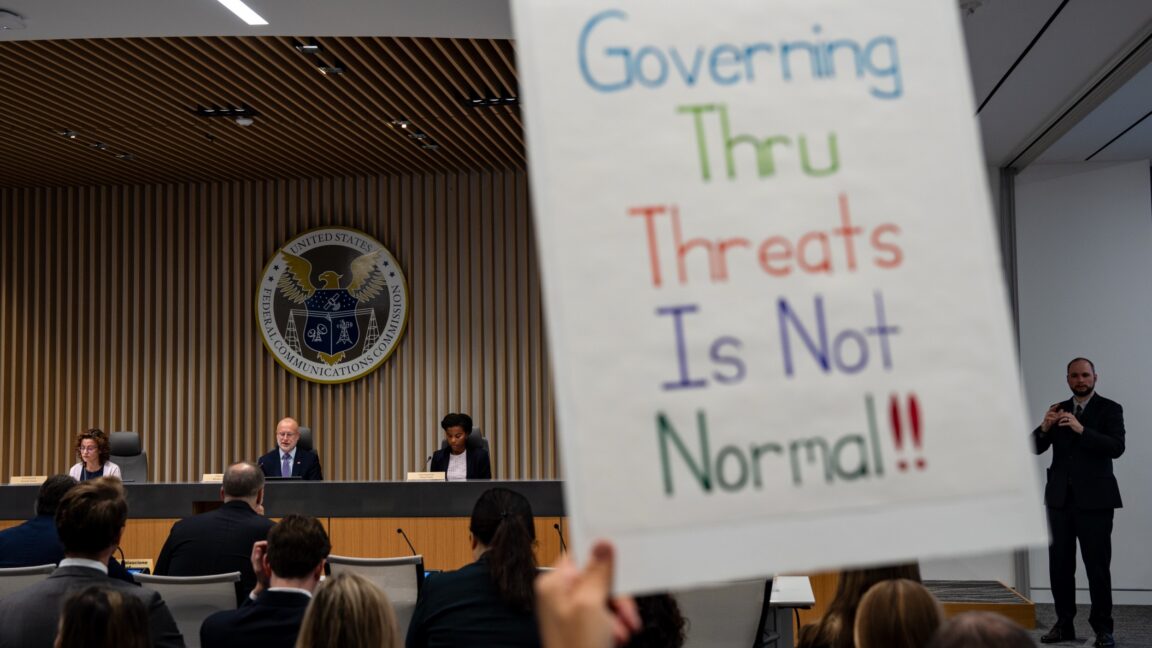
"Gomez said that "corporate behemoths who own large swaths of local stations across the country" continued blocking Kimmel for several days after the show returned "because these billion-dollar media companies have business before the FCC. They will need regulatory approval of their transactions and are pushing to reduce regulatory guardrails so they can grow even bigger.""
"Local stations are "trapped in the middle as these massive companies impose their will and their values upon local communities," Gomez continued. "This precise example neatly encapsulates the danger of allowing vast and unfettered media consolidation. This could drastically alter the media ecosystem and the number of voices that are a part of it.""
"Congress set the national ownership cap at 39 percent in 2004 and exempted the cap from the FCC's required quadrennial review of media ownership rules. There is debate over whether the FCC has the authority to eliminate the national limit, and Gomez argued that "given the prior Congressional action, I believe that only Congress can raise the cap.""
The FCC seized on a late-night comedian's comments as a pretext to punish speech, described as a clear act of government intimidation. Billion-dollar media companies that own many local stations blocked the show's host for days after its return because those companies have transactions pending before the FCC and are pushing to reduce regulatory guardrails to expand. Local stations are trapped between corporate owners and community audiences, risking imposition of owners' values and fewer local voices. Congress set a 39 percent national ownership cap in 2004 and exempted it from quadrennial review; only Congress can raise that cap. The FCC's regulatory structure balances national and local incentives.
Read at Ars Technica
Unable to calculate read time
Collection
[
|
...
]